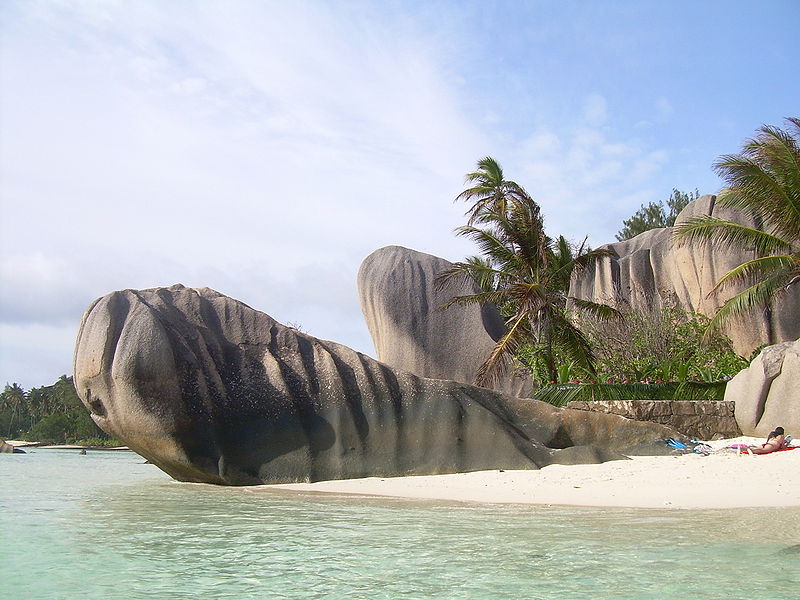test feature
you can edit it from frontend
you can edit it from frontend
- Blog Last Posts
-
Adding or Deleting a Category What is a Category? Lesson: Category Basics Adding or Deleting a Subcategory What is a Subcategory? What is Page Content? Editing Page Content / Using the Text...
-
Adding or Deleting a Category What is a Category? Lesson: Category Basics Adding or Deleting a Subcategory What is a Subcategory? What is Page Content? Editing Page Content / Using the Text...
- View all posts
Seychelles
The British contested control over the islands between 1794 and 1810. Jean Baptiste Quéau de Quincy, French administrator of Seychelles during the years of war with the United Kingdom, declined to resist when armed enemy warships arrived. Instead, he successfully negotiated the status of capitulation to Britain which gave the settlers a privileged position of neutrality.
Britain eventually assumed full control upon the surrender of Mauritius in 1810, formalised in 1814 at the Treaty of Paris. Seychelles became a crown colony separate from Mauritius in 1903. Elections were held in 1966 and 1970. Independence was granted in 1976 as a republic within the Commonwealth. In 1977, a coup d'état ousted the first president of the republic, James Mancham, who was replaced by France Albert René. The 1979 constitution declared a socialist one-party state, which lasted until 1991. The first draft of a new constitution failed to receive the requisite 60 percent of voters in 1992, but an amended version was approved in 1993.
Seychellois society is essentially matriarchal.[9][10] Mothers tend to be dominant in the household, controlling most current expenditures and looking after the interests of the children.[9] Unwed mothers are the societal norm, and the law requires fathers to support their children.[10] Men are important for their earning ability, but their domestic role is relatively peripheral.[9] Older women can usually count on financial support from family members living at home or contributions from the earnings of grown children.[9]
The music of Seychelles is diverse. The folk music of the islands incorporates multiple influences in a syncretic fashion, including European contredanse, polka and mazurka, French folk and pop, sega from Mauritius and Réunion, taarab, soukous and other pan-African genres, and Polynesian, Indian and Arcadian music.[citation needed] A complex form of percussion music called contombley is popular, as is Moutya, a fusion of native folk rhythms with Kenyan benga.
Traditionally, despite a greater connection with Great Britain (e.g., in education, which follows the International General Certificate of Education (IGCSE), and on many aspects of the law) many foreign observers[who?] have stated that "the culture remains emphatically French" and about 70% of the population have a family name of French origin, compared with only about 20% family names of English origin.[citation needed] The two are often mixed, such that inhabitants receive an English first name and a French family name or vice-versa (e.g., Jean-Pierre Kingsmith).
Britain eventually assumed full control upon the surrender of Mauritius in 1810, formalised in 1814 at the Treaty of Paris. Seychelles became a crown colony separate from Mauritius in 1903. Elections were held in 1966 and 1970. Independence was granted in 1976 as a republic within the Commonwealth. In 1977, a coup d'état ousted the first president of the republic, James Mancham, who was replaced by France Albert René. The 1979 constitution declared a socialist one-party state, which lasted until 1991. The first draft of a new constitution failed to receive the requisite 60 percent of voters in 1992, but an amended version was approved in 1993.
Seychellois society is essentially matriarchal.[9][10] Mothers tend to be dominant in the household, controlling most current expenditures and looking after the interests of the children.[9] Unwed mothers are the societal norm, and the law requires fathers to support their children.[10] Men are important for their earning ability, but their domestic role is relatively peripheral.[9] Older women can usually count on financial support from family members living at home or contributions from the earnings of grown children.[9]
The music of Seychelles is diverse. The folk music of the islands incorporates multiple influences in a syncretic fashion, including European contredanse, polka and mazurka, French folk and pop, sega from Mauritius and Réunion, taarab, soukous and other pan-African genres, and Polynesian, Indian and Arcadian music.[citation needed] A complex form of percussion music called contombley is popular, as is Moutya, a fusion of native folk rhythms with Kenyan benga.
Traditionally, despite a greater connection with Great Britain (e.g., in education, which follows the International General Certificate of Education (IGCSE), and on many aspects of the law) many foreign observers[who?] have stated that "the culture remains emphatically French" and about 70% of the population have a family name of French origin, compared with only about 20% family names of English origin.[citation needed] The two are often mixed, such that inhabitants receive an English first name and a French family name or vice-versa (e.g., Jean-Pierre Kingsmith).
 English
English  Español
Español  Русский
Русский 


